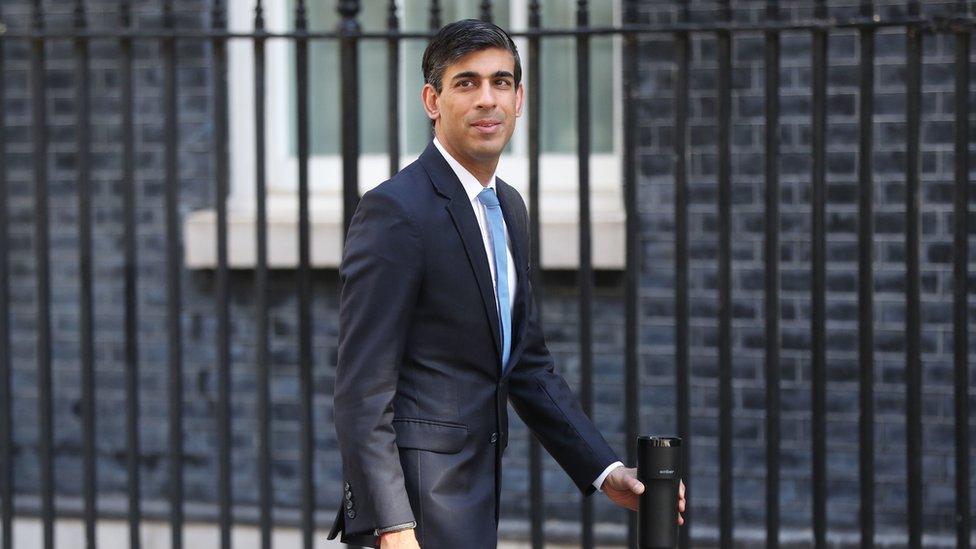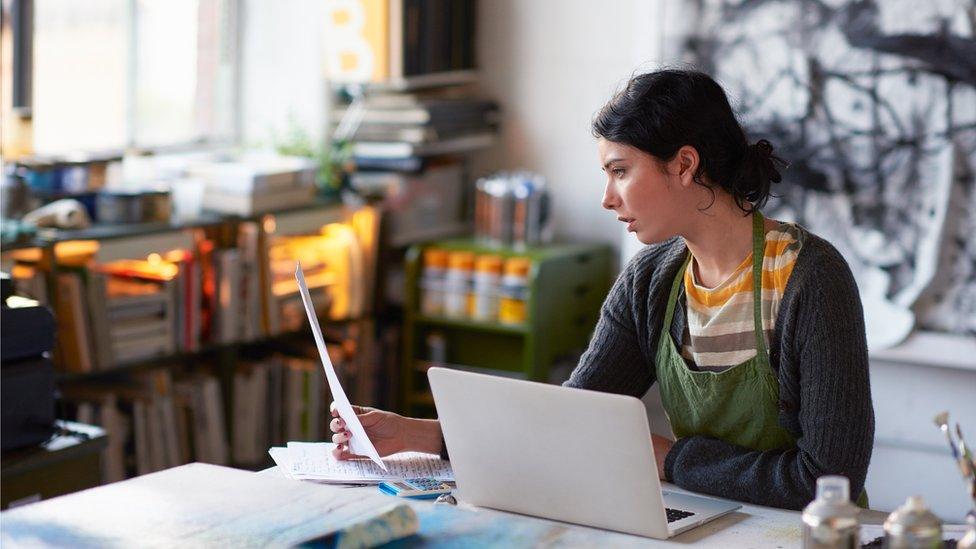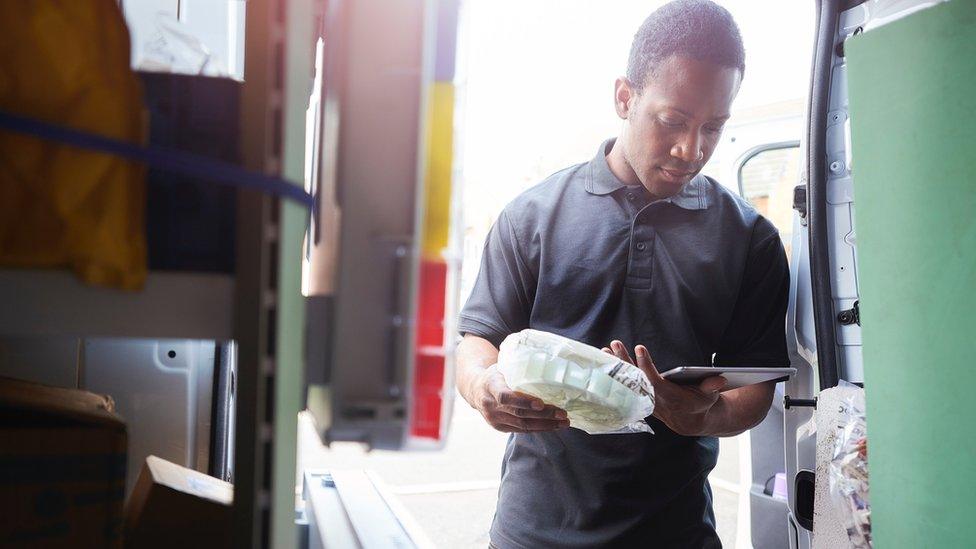Coronavirus: Claims open for second self-employed support grant
- Published

Millions of self-employed people whose trade has been hit by coronavirus can now apply for a second support grant from the government.
More than three million people may be eligible for the payment of up to £6,570 each, which Chancellor Rishi Sunak said would be the final hand-out.
HMRC said it was pleased with the positive start the scheme made when it opened on Monday morning.
By early Monday 39,000 people had successfully made claims, HMRC said.
Angela MacDonald, deputy chief executive at the HMRC, told BBC Breakfast that those claims were made within the first hour-and-a-half after the scheme opened.
The claims window is initially open for a four-day period but anyone who thinks they may be eligible and hasn't been contacted by HMRC has until October to make a claim, she said.
"We are trying very hard to contact all those people who are eligible in order to help them to understand when they can make their claim."
If you think you are eligible and haven't been contacted by HMRC, you can go onto the online system which will tell you if you are eligible, and when it is you can make a claim.
"People shouldn't worry about needing to do everything too much in a rush," said Ms MacDonald.
"If you don't manage it in those first four days the claims systems is actually open until the 19th October, so therefore everybody's got the time to do it to suit their working situation at the moment."
Fraudsters
The first grant, launched in May, saw £7.8bn claimed by 2.7 million people.
HM Revenue and Customs (HMRC) has admitted thousands were paid too much, but it will not be demanding repayment.
Some 15,000 payments - less than 0.6% of the total - were miscalculated in the first tranche of support, the tax authority said.
"The vast majority of grants were paid correctly, but in a very small number of cases, not all the information held on a tax return was taken into account when calculating eligibility and grants," said a spokesman for HMRC.
"Our top priority has been ensuring self-employed people receive grants quickly while protecting public money from deliberate fraudsters."
Legal services firm Integrated Dispute Resolution, which highlighted the error, said the scale of it was still not "fully understood".

To be eligible for the Self-Employment Income Support Scheme, more than half of a claimant's income needs to come from self-employment.
The scheme is open to those with a trading profit of less than £50,000 in 2018-19, or an average trading profit of less than £50,000 from 2016-17, 2017-18 and 2018-19.
Under the first payment, self-employed workers who qualified had been in line for a grant of 80% of their average profits, up to £2,500 a month for three months.
This was paid in one instalment, of up to £7,500.
Applications for this first payment closed on 13 July.
As of Monday, those eligible can claim the second, slightly less generous, grant covering 70% of the applicant's average monthly trading profits.
It will also be made in a single payment, covering three months and capped at £2,190 a month, or £6,570 in total.
Applicants will need to confirm their business has been affected by the virus on or after 14 July, but they would not need to have taken the first grant to be eligible for the second.
Missing out
A number of self-employed people, such as directors who pay themselves in dividends, freelancers, and the newly self-employed, are unhappy at missing out on the government's self-employment support package.
The Treasury Select Committee called on ministers to plug the gaps to fulfil the government's promise of "doing whatever it takes", but Mr Sunak defended "the right policies for the first phase of the crisis".
The system is the alternative to the extended furlough scheme for employed workers.
The Association of Independent Professionals and the Self-Employed welcomed the second round of grants.
But it said the government must be ready to reopen and "extend it to the desperately struggling forgotten self-employed" in the event of a second wave of the coronavirus.
- Published3 March 2021

- Published29 May 2020
